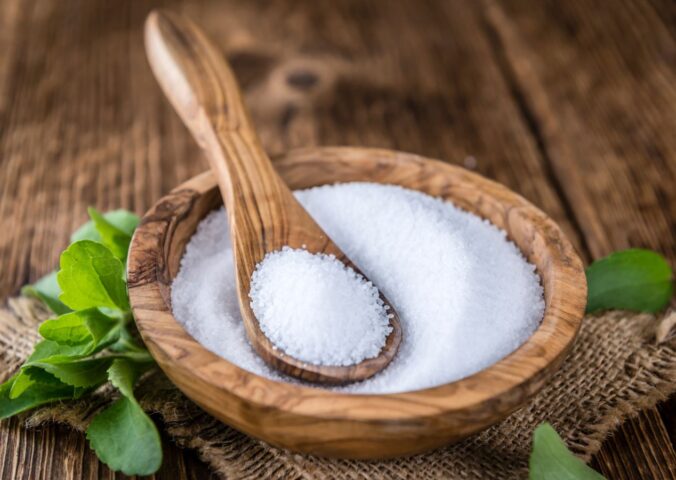This is paid for content* [what is this?]
As trendy as it is to highlight the dismal success rate of New Year’s resolutions (an estimated 91 percent of resolutions fail), there truly is no better time to make a major lifestyle change than January 1.
The new year is a blank slate.
It follows a series of overindulgent holidays, and because so many others are thinking about goals, it comes with a collective sense of accountability.
If you’re considering going vegan in the new year, congratulations!
Just thinking about it is the first step, and by reading this article and doing a little planning, you’re already off to a great start.
Going vegan is an all-encompassing lifestyle, which requires you to drop all animal products from your life. One of the main aspects of this is your diet, so I’ve compiled four important lessons you should know as you transition away from animal-derived foods.
1. Get prepared
Many people believe that adopting a plant-based diet is difficult, and that they’ll miss out on their favorite foods. But this is a myth. Most people who do so eat a far more varied and exciting diet than they did before, and you can now buy vegan versions of pretty much anything you ate before.
When you’re adopting a plant-based diet, it’s important to get prepared.
One way to do this is to head to a supermarket and stock up on some vegan essentials to fill up your fridge and kitchen cupboard.
Ideas of things to buy include:
- Nutritional yeast: if you haven’t heard of this magic ingredient, you need to get to know it, pronto. These flakes are popular among vegans for their slightly parmesan-like taste, and they’re great for pastas, stews, soups, and pretty much any dish you fancy. They’re also a nutritional powerhouse, packed with B vitamins and protein.
- Dairy-free milk: If you’re a fan of tea or coffee in the morning, make sure you have your fridge stocked up with a vegan milk of your choice. Oat is hugely popular, but you can also choose from soy, almond, coconut, and more.
- Legumes: foods like chickpeas and lentils are a great vegan protein source, and it’s a good idea to experiment with cooking with these ingredients. While you don’t have to eat them as a vegan, they can be a great addition to stews, curries, and other foods in place of meat.
- Vegan cheese / meat: while these foods are by no means a staple of most vegan diets, they can be a useful tool to help your vegan transition while you’re craving old favorites.
Getting prepared doesn’t just involve food – you could also learn more about veganism by watching documentaries like Dominion, What the Health, and Cowspiracy. These will remind you why you’re doing what you’re doing, and help spur you on for your journey.
2. Try new foods… but don’t overdo It

Embarking on a vegan lifestyle opens the door to a myriad of exciting new foods and recipes.
While it’s great to explore, it’s also important not to overwhelm yourself.
Here’s my advice on how to make sure you’re not overdoing it:
- Balance is Key: Regularly introduce new foods and recipes, but balance them with familiar meals to avoid fatigue.
- Simple Variations: Experiment with vegan versions of your favorite dishes. This familiarity can make the transition smoother.
- Embrace Diversity: Vegan diets can be incredibly diverse. Explore different cuisines to keep your meals interesting and nutritious.
3. Create a routine (here’s where meal planning comes In)
Coming up with what to cook every night when you’re trying out a new diet can feel exhausting.
Establishing a handful of recipes that are reliable and comfortable can take a lot of pressure off food decision-making.
And if you want to make it even easier, map out your meals for the entire week ahead of time. This will help with time and cost reduction, and also help you make sure you’re satisfied after each meal.
4. Yes, you can get enough protein
Finally, just in case there’s a lingering doubt in your mind…
Yes, you can get enough protein on a plant-based diet.
Plant foods are rich in micronutrients, and with a little planning, you’ll start to not even notice the lack of meat on your plate.
Here are a list of some of my favorite protein-rich plant foods:
- Seeds (flax, chia, pumpkin)
- Nuts (almonds, cashews)
- Seitan
- Soy (tofu, tempeh)
- Beans
- Lentils
- Quinoa
- Oats
Plus, you can always use a clean plant-based protein powder like Complement Protein to easily help increase your protein intake.
Aside from protein, plant-based eaters should be mindful of a handful of other hard-to-get nutrients.
Vitamin B12 is a big one often discussed, but vitamin D, K2, selenium, iodine, magnesium, zinc, and DHA/EPA omega-3 fatty acids should also be on your list.
While a plant-based diet is a nutrient powerhouse and one of the healthiest diets, all diets risk certain deficiencies and supplementation can be helpful for everyone, whatever diet they follow.
Bonus: join the Plants + Peloton New Year’s Sweepstakes
To help kickstart your plant-based resolution, Complement, PLANTSTRONG, Simple Green Smoothies, Mastering Diabetes, & Plant Based News have all teamed up to create the vegan New Years sweepstakes of your dreams!
We’re giving away $1,000 in free plant-based groceries, plus a Peloton bike and membership, a PLANTSTRONG Deluxe Pantry Bundle and premium Complement nutrients for energy, immunity, and longevity.
With a value over $8,500, this is the ultimate plant-based New Year’s resolution starter kit…
And it could be yours free!
Click here to enter the Plants + Peloton New Year’s Sweepstakes
* This content is produced in collaboration with Complement. Our commercial partnerships with organizations like this help us to provide our free services to millions of people each week.






